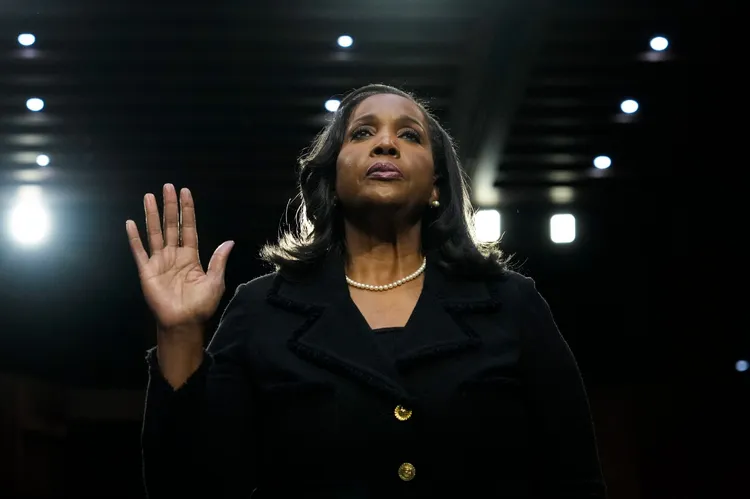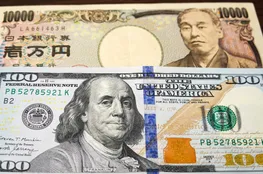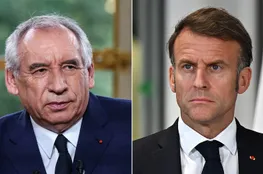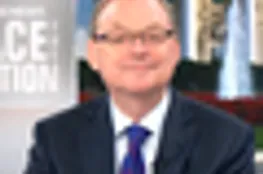A "chaotic, incoherent trade war" was pretty much priced in when Donald Trump returned to the White House, said Robin Wigglesworth on FT Alphaville. What was unknown was whether he’d risk "financial-economic calamity" by launching an assault on the independence of the US Federal Reserve. Well, now we’ve got our answer. "In a stunning escalation" of his attacks on the central bank, the US president has fired one of its seven board governors, Lisa Cook – claiming there is "sufficient reason" to believe she made false statements on her mortgage documents. Cook denies the allegation and is lawyering up, said Stephen L. Carter on Bloomberg. The Supreme Court is likely to uphold her case, having earlier ruled it would shield the Fed from at-will removals by Trump. Nonetheless, she’ll face hefty legal bills. The Treasury secretary, Scott Bessent, once likened his boss’s verbal attacks on the Fed to a basketball coach "working the refs" to get better calls. "Trump isn’t just working the refs. He wants to replace them." And if he isn’t allowed to fire them, "he’ll settle for wearing them down". Trump’s attempt to oust Cook has triggered outrage. "We are all Lisa Cook," posted economist Paul Krugman. "Nobody is safe from weaponised government." Certainly, the move is an assault on a key pillar of America’s economy and democracy, said Greg Ip in The Wall Street Journal. "In the central bank’s 111-year history, no president has tried to remove a governor." His past musings about firing chair Jerome Powell roiled markets; so instead of pursuing that line, he’s trying to replace Cook, taking a more roundabout approach to his bid to seize control of the Fed. If he manages it, he’ll have appointed four of the Fed’s seven governors, and thereby gained a board majority. The market response to all this has been fairly subdued. "Don’t let that fool you. This week will go down as one of the most consequential for financial markets in decades." Within nine months, investors must expect the US central bank to start setting interest rates "according to Trump’s preferences". As a result, inflation will be higher and more volatile than in the decades before 2020. If Trump is setting interest rates for the world’s biggest economy, we can expect "a very rocky ride", agreed Matthew Lynn in The Daily Telegraph. Still, he does have a point of sorts. "Repeated failures" have exposed the weaknesses of "the lords of monetary policy". The era of the all-mighty central banker is well and truly over. Yet the prospect of "a captured Fed" is terrifying, said the FT. Ultimately, "more severe market rucations" might be the only way "to force Trump to pull back". This unprecedented action by the Trump administration raises serious concerns about the future of monetary policy in the United States. The independence of the Federal Reserve is a cornerstone of American economic stability, and any attempt to undermine it could have far-reaching consequences.
The removal of Lisa Cook, a seasoned economist with a distinguished career, underscores a dangerous trend: the willingness of the executive branch to interfere in the operations of an independent central bank. The legal challenges Cook is pursuing are crucial, and the Supreme Court’s eventual ruling will likely set a precedent for future conflicts between the executive and judicial branches regarding the Fed’s autonomy. The underlying issue is not simply about one governor’s tenure but about the broader principle of separation of powers and the integrity of America’s financial system. Critics argue that Trump’s motives are purely political, aiming to exert control over interest rates and, consequently, the economy. This move represents a significant escalation in Trump’s efforts to challenge the Fed’s authority, following previous criticisms and attempts to pressure the central bank to adopt a more accommodating monetary policy. The potential ramifications are substantial, including increased market volatility, higher inflation, and a loss of confidence in the Fed’s ability to maintain price stability. The legal battle surrounding Cook’s removal is expected to be lengthy and complex, with significant implications for the future of monetary policy.
The situation demands careful scrutiny and a commitment to upholding the principles of a robust and independent central bank.
























